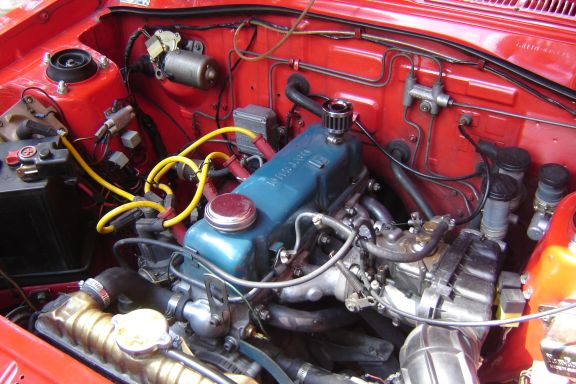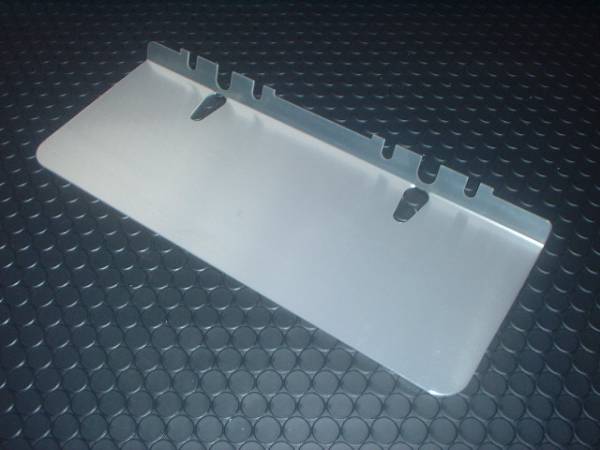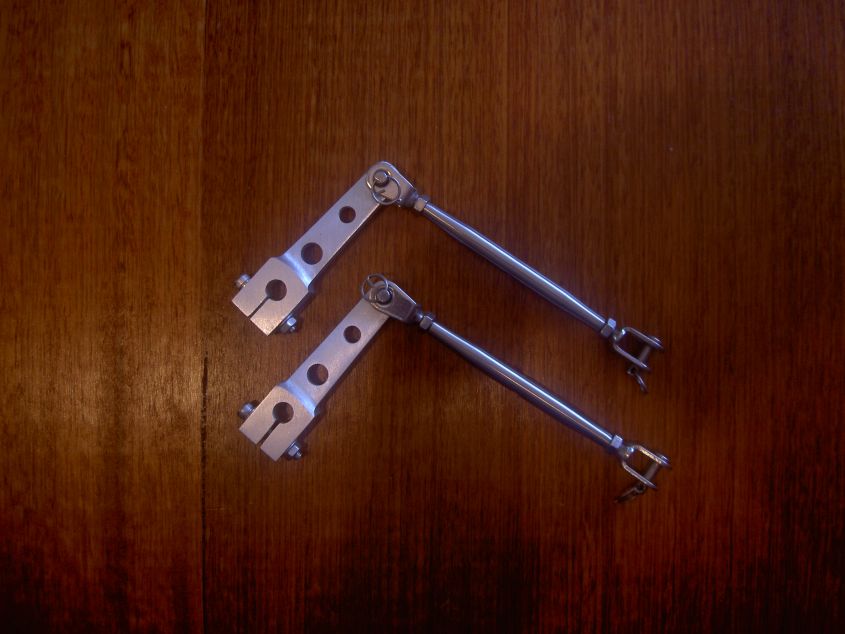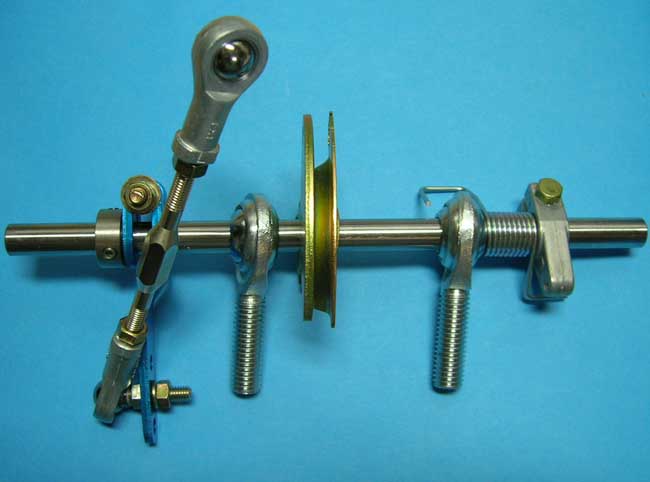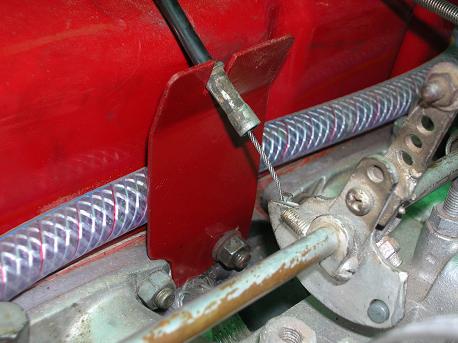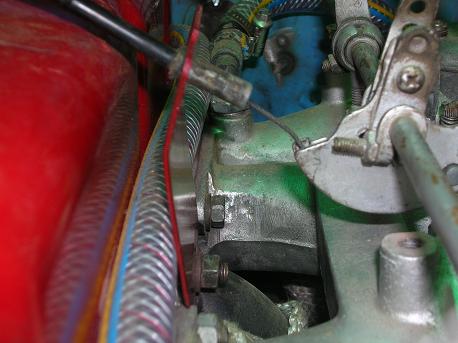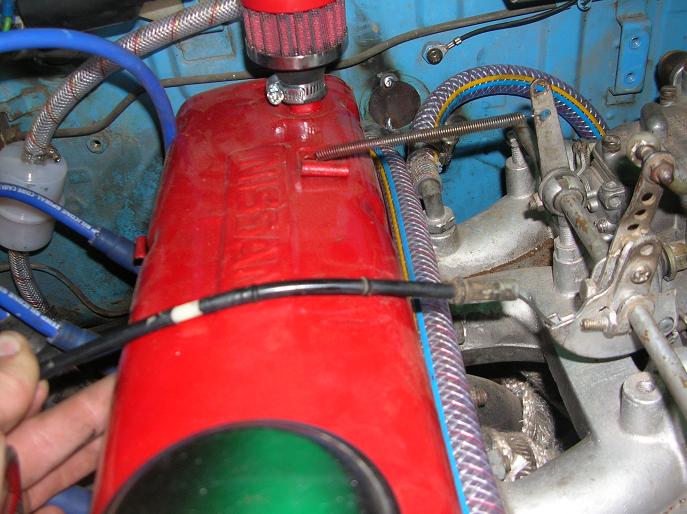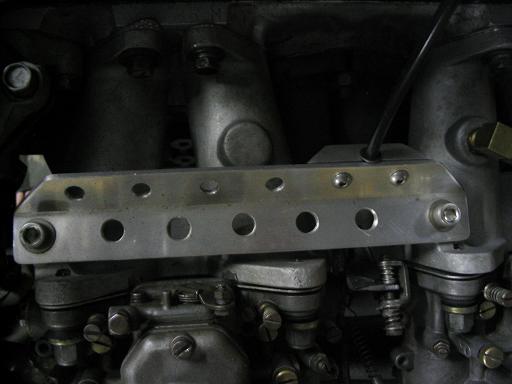| Revision as of 05:58, 29 January 2016 ddgonzal (Talk | contribs) (->Adjustment) <- Previous diff |
Revision as of 01:08, 25 February 2016 ddgonzal (Talk | contribs) (->Overview) Next diff -> |
||
| Line 3: | Line 3: | ||
| Dell'Orto carburetors from Italy their DLHA series were fitted to the Datsun 1200 [[SSS]] model. Dellorto made other types, but the DHLA fit the common [[Weber DCOE carburetor]] intake manifolds. | Dell'Orto carburetors from Italy their DLHA series were fitted to the Datsun 1200 [[SSS]] model. Dellorto made other types, but the DHLA fit the common [[Weber DCOE carburetor]] intake manifolds. | ||
| + | |||
| + | = Also See = | ||
| + | * [[Choosing A Carburetor]] | ||
| = Overview = | = Overview = | ||
| Line 16: | Line 19: | ||
| The last Dellortos were made for the Lotus Esprit Turbo. Production ceased in 1992 due to lowered demand for carburetors in the face of EFI. | The last Dellortos were made for the Lotus Esprit Turbo. Production ceased in 1992 due to lowered demand for carburetors in the face of EFI. | ||
| + | |||
| + | The great thing about these carbs is that the jets are externally accessible, even when the air filter is on. This makes jet changes at the racetrack a snap. | ||
| + | |||
| + | Dellorto DHLA uses the same Intake Manifold as [[Weber DCOE carburetor]], or [[Mikuni PHH]]. | ||
| + | |||
| + | = Single Or Twin = | ||
| + | A twin setup has a huge advantage over the single: ITB (individual throttle bores). 2 sidedrafts = 4 throttles. | ||
| + | |||
| + | See [[Choosing_A_Carburetor#Single_or_Twin.3F|Choosing A Carburetor: Single or Twin?]] | ||
| + | |||
| + | {{Sidedraft}} | ||
| = Source = | = Source = | ||
Revision as of 01:08, 25 February 2016
Dell'Orto carburetors from Italy their DLHA series were fitted to the Datsun 1200 SSS model. Dellorto made other types, but the DHLA fit the common Weber DCOE carburetor intake manifolds.
Contents |
Also See
* Choosing A Carburetor
Overview
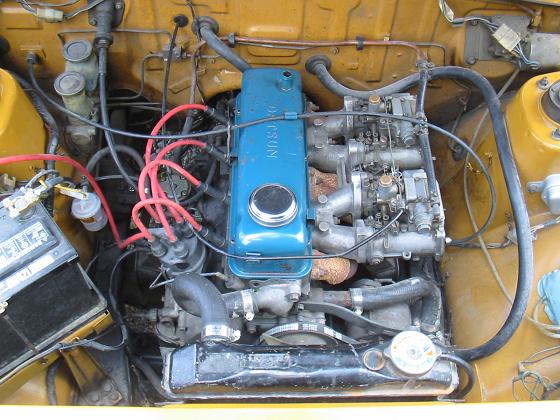
Dellorto DHLA are similar to the Weber DCOE carburetors, but have their own unique parts and some say a better design and look better.
The DHLA & DRLA carburettors are widely believed to be the most sophisticated carburettors of their type, prompting David Vizzard to say in Auto Performance magazine, “Dell’Ortos produce truly excellent results...On engines where atomisation is a premium requirement, Dell’Ortos are superior to everything”.
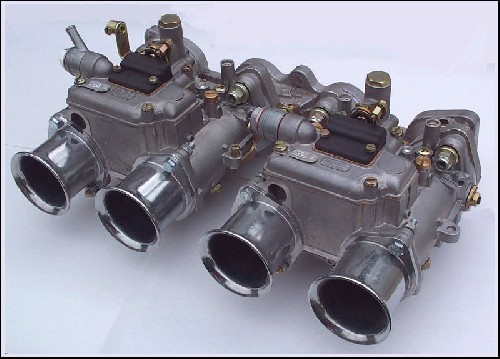
The last Dellortos were made for the Lotus Esprit Turbo. Production ceased in 1992 due to lowered demand for carburetors in the face of EFI.
The great thing about these carbs is that the jets are externally accessible, even when the air filter is on. This makes jet changes at the racetrack a snap.
Dellorto DHLA uses the same Intake Manifold as Weber DCOE carburetor, or Mikuni PHH.
Single Or Twin
A twin setup has a huge advantage over the single: ITB (individual throttle bores). 2 sidedrafts = 4 throttles.
See Choosing A Carburetor: Single or Twin?
Intake Manifold
Weber DCOE, Dellorto DHLA and Mikuni/Solex PHH use the same manifolds. Single or Twin manifolds are available, for round-port or oval-port A-series engines.
Vacuum Connection
Drill & tap the boss for a tube fitting. Can be used for power brakes, distributor vacuum advance.
Air Filter
Many use simple screens over the carburetor, which keep large objects out of the engine. This (or no screen) provides the fullest "awesome sidedraft sound", but at the expense of increased engine wear.
For filtering, the easiest thing is sock filters, but all sorts of regular and remote filter can be used.
LHD Fitment
Space for twin sidedrafts on LHD 1200s is limited because the brake master cylinder is on the carburetor side of the engine.
Heat Shield
Adjustment
Idle Speed and Mixture Adjustment
- Warm engine fully
- Adjust curb idle speed to 900 rpm
- Slowly turn mixture screw out until the engine speeds up, then keep turning out until engine starts to slow down slightly (overly rich)
- Screw in (clockwise) until engine slows down (lean). Turn back out til it runs fastest (Best Lean)
- Repeat for second barrel of the carburetor
- If a twin-carb setup, repeat for the second carburetor
To get a 'feel' for this adjustment, turn the screw by half turns clockwise and anticlockwise till you hear the engine speed up and slow down. Then fine turn with 1/4 turns. Do this repeatedly until you are confident of the results.
Linkage
Linkage depends in part on the manifold you use. Does it have bolt-bosses for linkage? Or does it have built-in linkage bar?
Side Pull
Tomei manifold Side Pull. Nismo/Tomei manifold have built-in bar towers and use a large diameter cross bar
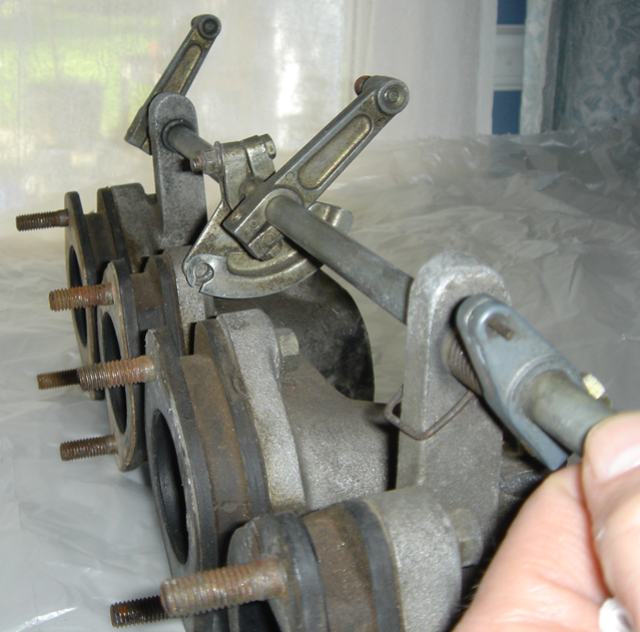
Center Pull
Center Pull - Need the floating lever for the carburetors. In essence, a single throttle lever, with its own balance screw

Center Pull needs only one carb-pull, eliminating the separate throttle adjustments. The center floating linka has its own balance screw

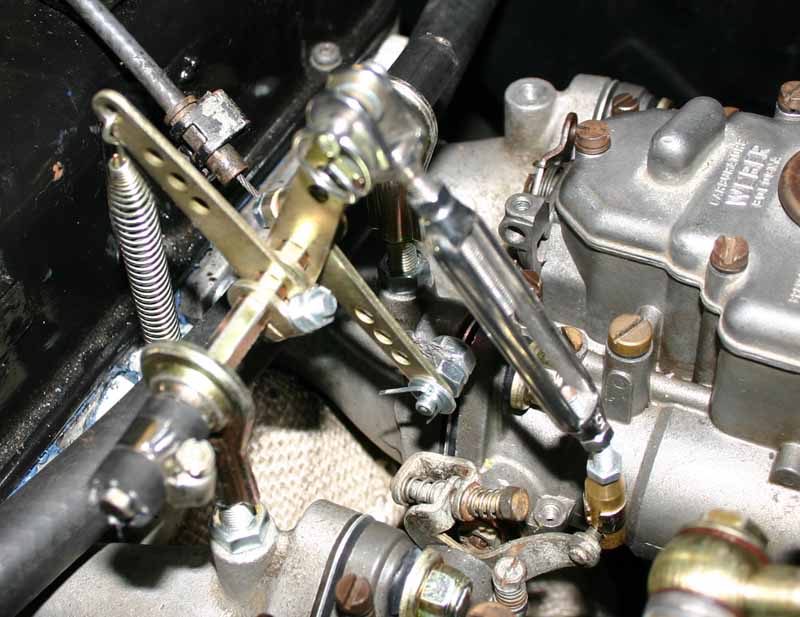
Single Carb Linkage
Quadrant
Fan lever - Harada Shosho company

Throttle Lever
Universal carby throttle lever

Source
Dellorto DHLA may be purchased from Eurocarb at http://www.dellorto.com
Selection
As with any carburetor, the single most important specification is the venturi (choke) size -- not the barrell size. So a 40 or 45 is not the question. The question is which choke size should be used.
See main article: Carburetor Sizing
For a stock A12, 28 mm is the correct choke size. Which the DHLA series, you can use either 40s or 45s -- a wide variety of venturis are available for both.
Adjustment
Idle Speed and Mixture Adjustment
- Warm engine fully
- Adjust curb idle speed to 750 rpm
- Slowly turn mixture screw out until the engine speeds up, then starts to slow down
- Screw in (clockwise) to lean the mixture down to 725 rpm
Do the same for both carburetors. To get a 'feel' for this adjustment, turn the screw by half turns clockwise and anticlockwise till you hear the engine speed up and slow down. Then fine turn with 1/4 turns. Do this repeatedly until you are confident of the results.
Tuning
Tuning any carburetor is mythically difficult. However, DHLA is no more complicated than Weber or the Hitachis that come stock on Datsuns. They are tuned basically the same way.
SSS DHLA40 jetting specs Venturi: 28mm Main jet: 115 Needle and seat: 1.50 Float: .01 Starter jet: 70 Starter emulsion tube: .01 Idle jet holder: .01 Idle jet: 50 Air corrector: 200 Emulsion tube: .01 Aux venturi: .01 Pump jet: 33 Pump delivery: 7.5
To suit SSS A12 engine with mild rally cam (see specs in SSS section) and 4-2-1 tubular headers
Also see: http://www.gruntled.com/Dellorto/
NOTE: When removing and re-inserting the Pump Jet, be sure to line up the passages. See http://www.gruntled.com/Dellorto/PumpJet.html
- Choose DHLA 40 for A-series engines
- Or DHLA 45 for larger engines
- Choose appropriate venturi size, perhaps 26mm is best for stock A12 engine
- Available from 25 mm to 37 mm in increments of 1mm
- Part number 8383.25 to 8383.37 at Eurocarb
- Auxiliary venturi from size 1 to 4
- DHLA Starter -- tuning for cold starting
- starter jet sizes from 48 (3315.48) to 105 (3315.105)
- starter emulsion tube 1 to 4 (7482.1 to 7482.4)
- Accelerator Pump
- Pump Jet sizes 33 to 60
- Pump rod adjustment. Screwing the nut tighter increases fuel delivery, turning it anti-clockwise reduces delivery.
- Combination of Jet and tightness works 1) Time, shoot for 1 second 2) volume. Probably twin carbs will be within 1/2 turn of each other to deliver the same volume. Test this by actual measurement using a CC vial.

![[Datsun 1200 encyclopedia]](/wiki/upload/wiki.png)

